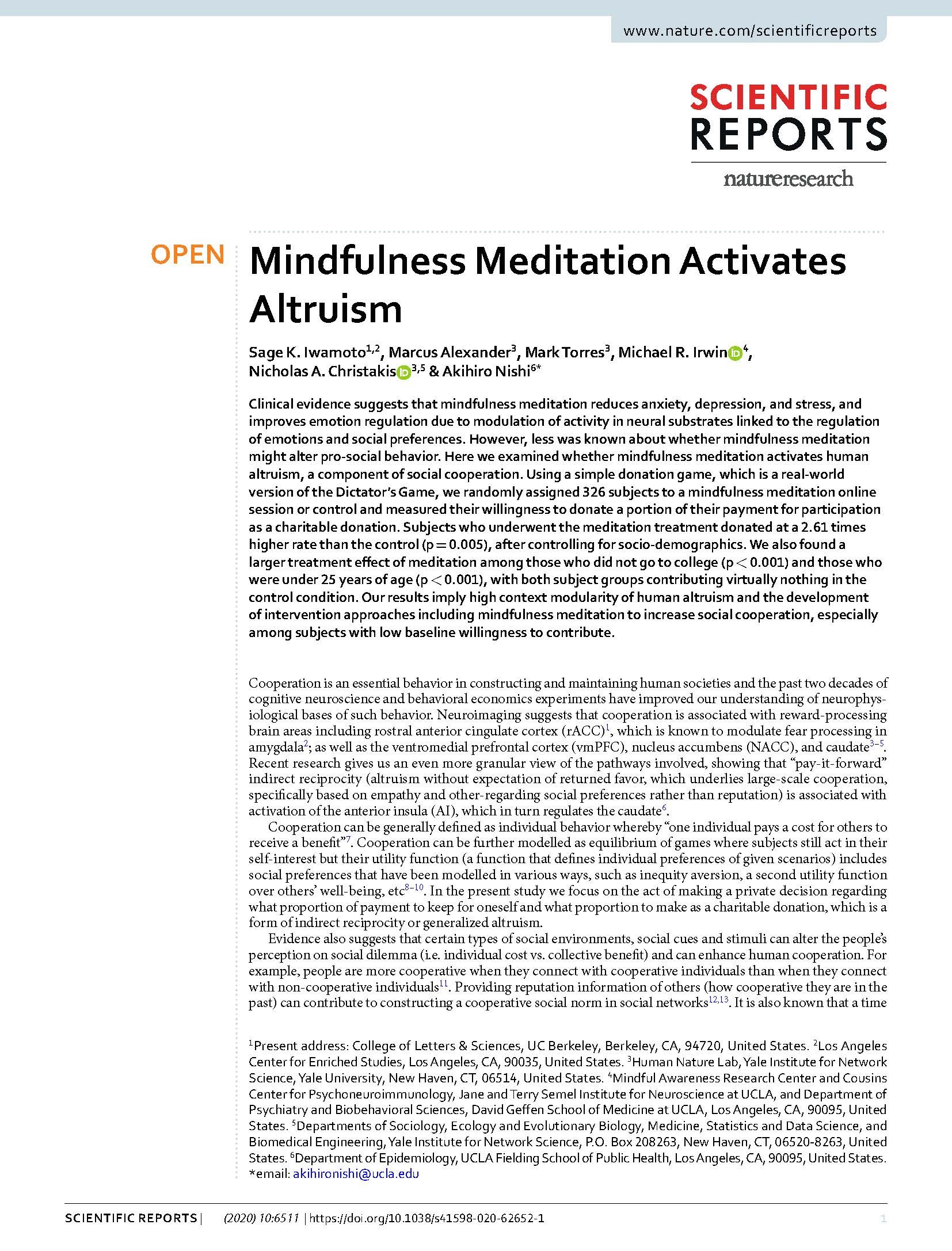
Mindfulness Meditation Activates Altruism
Abstract
Clinical evidence suggests that mindfulness meditation reduces anxiety, depression, and stress, and improves emotion regulation due to modulation of activity in neural substrates linked to the regulation of emotions and social preferences. However, less was known about whether mindfulness meditation might alter pro-social behavior. Here we examined whether mindfulness meditation activates human altruism, a component of social cooperation. Using a simple donation game, which is a real-world version of the Dictator's Game, we randomly assigned 326 subjects to a mindfulness meditation online session or control and measured their willingness to donate a portion of their payment for participation as a charitable donation. Subjects who underwent the meditation treatment donated at a 2.61 times higher rate than the control (p = 0.005), after controlling for socio-demographics. We also found a larger treatment effect of meditation among those who did not go to college (p < 0.001) and those who were under 25 years of age (p < 0.001), with both subject groups contributing virtually nothing in the control condition. Our results imply high context modularity of human altruism and the development of intervention approaches including mindfulness meditation to increase social cooperation, especially among subjects with low baseline willingness to contribute.
Citation:
S.K. Iwamoto, M. Alexander, M. Torres, M.R. Irwin, N. A. Christakis, and A. Nishi, “Mindfulness Meditation Activates Altruism,” Scientific Reports, 10(1): 6511 (Apr 2020) DOI: 10.1038/s41598-020-62652-1